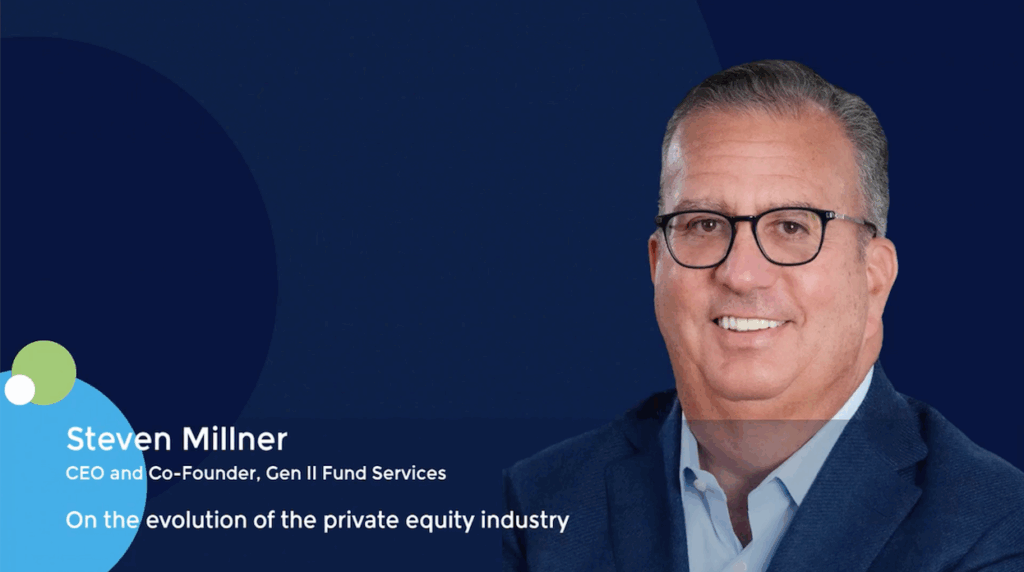Japan private equity: Foreign mid-market GPs make their play
- China GPs are the most notable arrivals, but others are tracking opportunities
- Working with local partners helps fill gaps in Japan knowledge and networks
- Talent remains the key bottleneck for established investors and newcomers
Buyouts in Japan are on course to surpass 150 for the first time on record, almost doubling the 2017 total. This should not obscure the fact that deal volume is running at a three-year low, but rather accentuate the role of the middle market at the epicenter of activity.
Between 2021 and 2023, nearly 30 deals of USD 500m or more were announced, half exceeding USD 1bn. Six surpassed USD 3bn, according to AVCJ Research. There have only been two USD 1bn-plus transactions in 2024 to date, reflecting the intrinsic lumpiness of the large-cap space. Regardless, every global and pan-regional GP active in Asia aspires to do more in Japan.
At the same time, a trickle-turned-flow of managers beyond the large-cap usual suspects – from mid-market country-focused managers to venture capitalists – are looking for Japan deals. Chinese GPs are the most conspicuous, driven by a desire to reinvent themselves as China nexus players, but they are joined by peers from as far afield as Australia and Europe.
Hillhouse Investment, a global manager most readily associated with China, is closing in on a take-private of property developer and manager Samty Holdings. Local GP Unison Capital is working with China’s FountainVest Partners on a buyout of jewellery business Tasaki and may do the same with YF Capital, which is among the shortlisted bidders for content lens supplier T-Garden.
Another partnership has already produced results. Last month, Australia-based Potentia Capital and Japan’s J-Star announced the acquisition of Jinjer, a human resources software business.
“The trigger is probably China. If we assume an Asian fund that used to have a China allocation is now scaling back, it will look at other markets,” said Akihiko Yasuda, a managing director at fund-of-funds Asia Alternatives, who highlighted the appeal of India and Southeast Asia as well as Japan.
“Japan is the world’s fourth-largest economy, the story seems good, so investors say, ‘Let’s go try.’ They have different motivations, but GPs are starting to put more capital – and people – into Japan.”
The trust factor
Global private equity firms spent much of the previous decade addressing negative public perceptions of the asset class. A general reluctance to sell to large-cap international sponsors only began to ease as managers constructed local track records and established their value creation bona fides across corporate carve-outs, founder-succession transactions, and take-privates.
Despite a burgeoning opportunity set – plus currency movements that favor US dollar investors, ample local debt financing, and relatively attractive entry multiples in the mid-cap space – only a handful of new arrivals have completed deals. According to industry participants, these GPs must go through the same credibility-building exercise as their global peers.
It involves not only developing a familiarity with Japanese history, culture, and language, but also demonstrating a commitment to the market by putting boots on the ground.
Michihiro Nishi, a partner at Clifford Chance, points to the aftermath of the 2011 earthquake and tsunami as an example. “There were significant criticisms of foreign corporations and investors who left the country, helping to reinforce the perception that foreign investors were solely focused on generating profits and were abandoning Japan at a time of great need,” he said.
Difficulties getting access to deal flow as a non-local are frequently flagged. One Southeast Asia-based LP keen on rebalancing a China-heavy portfolio by adding more Japan highlighted the relative lack of traditional competitive dynamics – if processes are open to multiple bidders, the field is often carefully curated and deliberately small.
“If you really want to do your first deal [on your own] in Japan, there are two key things you need to bear in mind. First, reconsider the notion of taking full control and do a minority investment instead,” added Yasuda of Asia Alternatives, noting that such an approach, even if employed as an initial gambit, can help address vendor concerns about layoffs and management changes.
“Second, think about leverage. To get deal financing in Japan, you need to win the trust of Japanese banks, which isn’t easy.”
China challenges
Chinese GPs face additional barriers around geopolitical tension-linked regulatory scrutiny, especially those targeting the technology sector. One China-focused private equity investor, who has failed to get traction in Japan despite numerous visits, complained that bankers prioritize global and local sponsors while access to certain industries is limited.
This is not solely a Japan problem, and various Chinese managers are trying to reposition as regional or global players. Some are putting distance between their renminbi and US dollar-denominated businesses, with the latter branded as international.
Lyfe Capital, for example, has expanded from China into the US, Singapore, and South Korea. A Tokyo office opened earlier this year. It is targeting control and joint control in Japan’s lower mid-market, focusing on supply chain reorientation within healthcare. HighLight Capital, another healthcare specialist, also recently opened a Tokyo office as part of efforts to scale up global investment.
Ocean Link, a growth stage and buyout investor in e-commerce and tourism assets, is one of few China GPs to close a deal. The firm made its Japan debut in April with the acquisition of hotel brand Hotel MONday, the culmination of a two-year project. A China-based portfolio company, Delonix Group, came into the deal as an equal co-investor.
Local operational assistance is provided by the Japan team at Trip.com [NASDAQ:TCOM] – a strategic backer of Ocean Link – and former colleagues of Tony Jiang, a co-founder and partner at the firm, who is a Carlyle [NASDAQ:CG] alumnus. Jiang said that being a sector specialist makes it easier to source local expertise, even though the addressable deal pipeline is narrower.
Ocean Link sourced Hotel MONday on a proprietary basis, but also participates in auctions. Inflated valuations often pose a challenge, with Jiang noting that EBITDA multiples are often double those of similar companies in other markets.
For Potentia, the valuation uptick is more of a recent phenomenon and doesn’t’ necessarily undermine Japan’s fundamental appeal. The firm entered Japan in 2017 through Workworld, a bolt-on acquisition by Australia-headquartered HR software-as-a-service (SaaS) business Ascender. Jinjer represents a second foray into this space.
“If we compare the Japanese market to Western markets, there is 30 years of deflation in the Japanese market which has led to 30 years of constrained valuations,” said Michael McNamara, a partner at Potentia. “Many players are certainly investing now, driving up valuations. There is upward pressure, but we are still seeing good opportunities.”
Picking partners
Between Workworld and Jinjer, the firm looked at multiple opportunities in Japan, reasoning that technology specialists could capitalize on the country’s digitalisation drive and increased adoption of cloud software. Workworld’s founder helped out on the ground, but Potentia still lost out on deals, typically because of intense competition or vendors favoring domestic GPs.
A chance meeting in 2022 initiated the relationship with J-Star. The mid-market Japanese manager has never worked with a foreign GP before but recognized the benefits of combining its local knowledge with Potentia’s domain expertise.
“There is a very neat cultural alignment between the two firms. Both firms have a strong sense of humility and are very entrepreneurial, and we deeply respect J-Star’s willingness to explore new avenues of growth,” said Lachlan Kennedy, an investment manager at Potentia.
Kenta Shima, a partner at J-Star, added that the firm is open to working with other foreign managers, though there is a clear preference for sector specialists. Other Japanese GPs appreciate the strategic rationale of such partnerships when appropriate opportunities emerge.
“We can acquire companies in Japan and work with local management. When it comes to expanding into overseas markets like China, we can build new teams or bring in new management. But who has the best resources? Working with a GP that has an extensive network and expertise we don’t possess makes a lot of sense,” said T.J. Kono, a partner at Unison Capital.
At the same time, there is a general awareness that poorly devised and executed alliances often lead to sub-optimal returns. For example, there have been instances where two investors hold equal equity positions and pull in opposite directions. Alignment of interest issues are also created by having multiple participating funds, each at a different point in its lifecycle.
“We work with GP partners we have known for several years and where each side has conducted due diligence on the other. We need to be comfortable that we share very similar beliefs in terms of business and ethics,” said Jun Tsusaka, founding managing partner of NSSK.
“LPs often take years deciding whether to invest in a GP. We would do the same thing.”
War for talent
For any non-local manager looking to increase coverage of Japan, talent is an obvious bottleneck. Gavin Smith, a managing director at Atlas Recruitment, observed that recruitment has always been a challenge. However, in last three years, the market has become even more competitive at every level, in part because there aren’t enough people with relevant skill sets.
Carlyle has been operating in Japan for more than 20 years, but the firm’s latest country fund is its largest to date. The increase in size was based on faster-than-expected deployment in the previous vintage – more deals are expected over the coming five years, and this requires a larger team.
Integral Corporation [TYO:5842] is in a similar position. Its fifth fund is twice the size of the previous vintage and there are likely to be twice as many investments, Tsuyoshi Yamazaki, a partner at the firm, told AVCJ earlier this year. Headcount has expanded from 60 on closing Fund IV to around 80, including 50-60 investment professionals. Integral is still hiring to address the additional deal flow.
L Catterton, which is raising a Japan vehicle alongside its latest Asia fund, has doubled the size of its local team to 12. All are Japanese-English bilingual, with some fluent in other languages as well.
Kazuhiro Yamada, a managing director and co-head of Japan at Carlyle, noted that talent retention has become a larger focus in recent years amid rising competition from longstanding Japan investors and new entrants. Carlyle’s global brand and local track record are selling points, but the firm also looks into what motivates current and prospective employees.
“One factor is transaction experience. There is a hunger to do deals from our investment professionals. As Carlyle’s Japan buyout strategy is only focused on the local market, we are very active and our professionals work across several deals per year. This can contrast with a pan-Asian or global strategy which may only do one deal per year in the region,” Yamada explained.
Other Japan-based GPs have broadened the distribution of carried interest or equivalent long-term incentives to include analysts and associates and sought to provider greater clarity on career progression to individuals at vice president and director level.
China sponsors, meanwhile, have concentrated their recruitment efforts on different areas, specifically the Japan teams of Chinese multinationals.
Lyfe spent two years finalizing a Japan strategy and finding someone to execute it. One of its local hires is a vice president from China Ping An Insurance Overseas who speaks native-level Chinese and Japanese. YF Capital hired a partner from SoftBank Investment Advisers and a managing director from CITIC Capital Partners Japan.
Ocean Link, which wants to open an office in Japan, will also prioritize similarly bilingual local candidates. Jiang is currently spending 5-10 each month in-country as part of efforts to build out coverage.
Several industry participants also raised the prospects of wholesale acquisitions of investment platforms as an alternative to seat-by-seat recruitment. There is a global trend of consolidation within the broader private markets space, but extending that to localised M&A in Japan is conditional on identifying targets that are both available and a good fit.
Saturation point?
As private equity firms of different types are increasingly drawn to Japan there are inevitable concerns about oversaturation. “If everyone is chasing the same private equity deals and bidding the deal values upwards, private equity firms are likely to underperform,” said Euan Rellie, a managing partner at boutique investment bank BDA Partners.
“We are still in a challenging fundraising environment globally, where funds that do not achieve good returns struggle to raise additional capital.”
Moreover, bidding aggressively for assets and then delivering outperformance becomes harder in a relatively low-growth economy. But Yasuda of Asia Alternatives maintains that Japan can deliver the desired returns provided investors take the right approach – and invest in the right capabilities.
“If you don’t believe in Japan’s sustainability over the next five years, don’t go there as a private equity investor,” he said.













